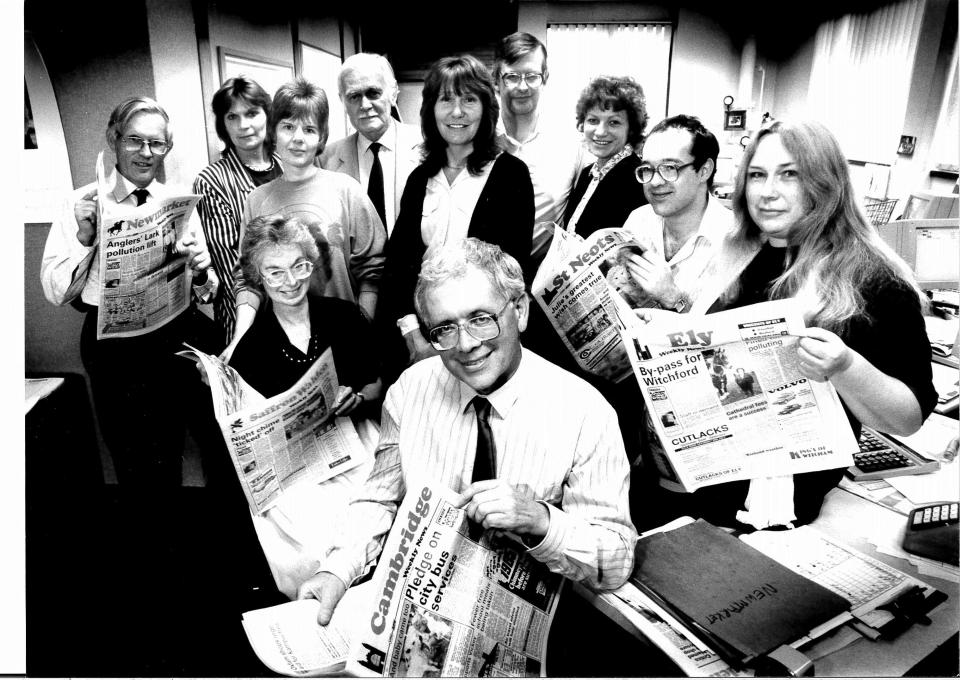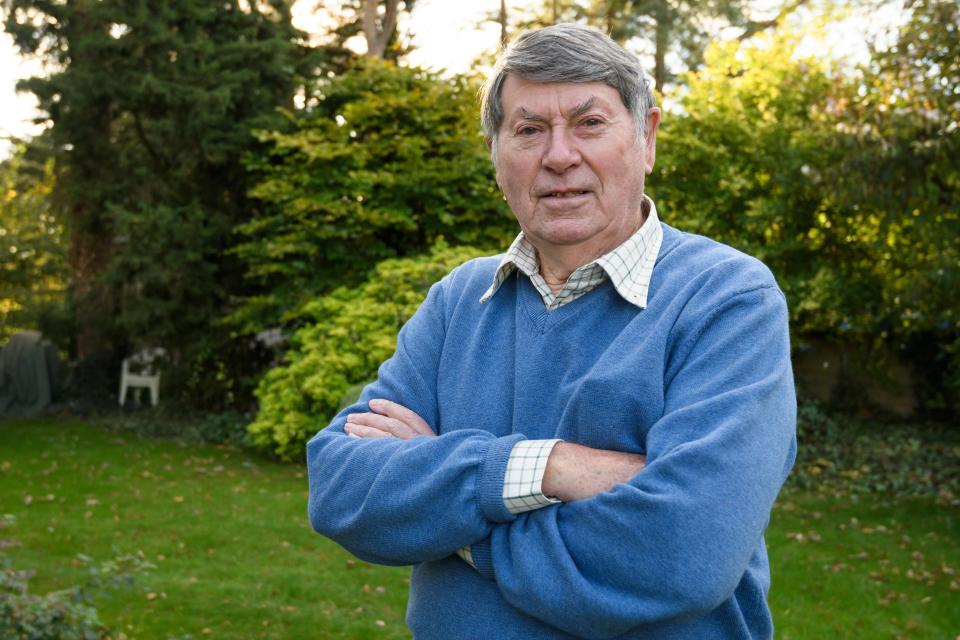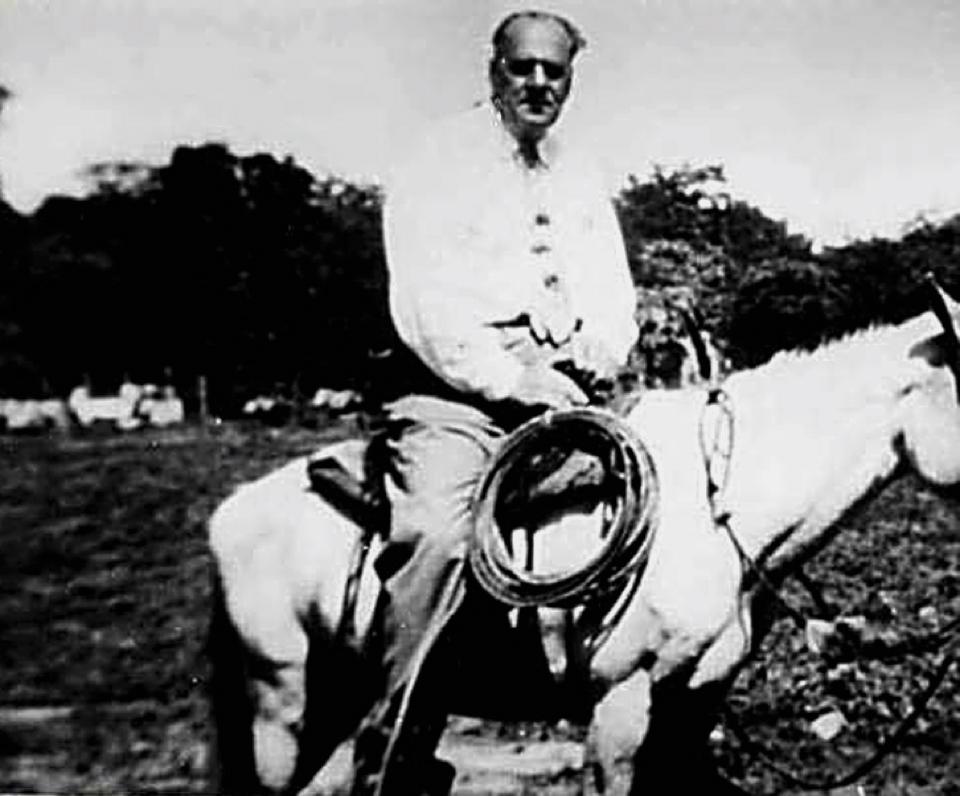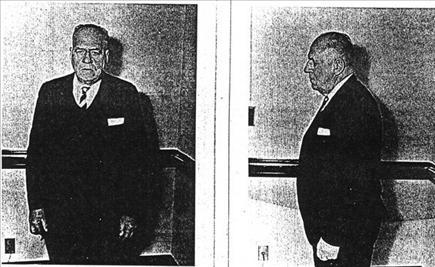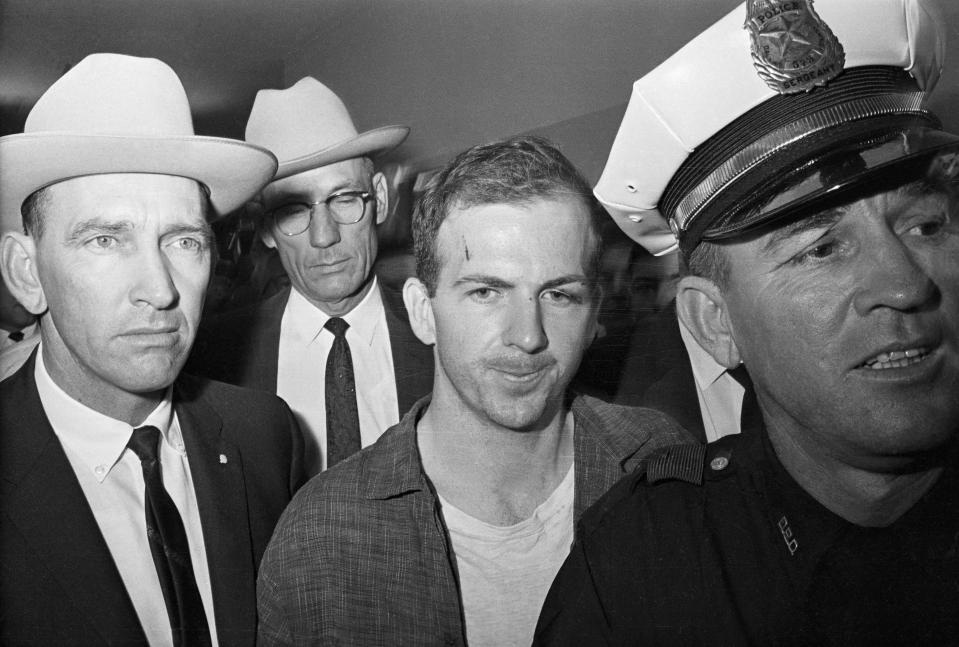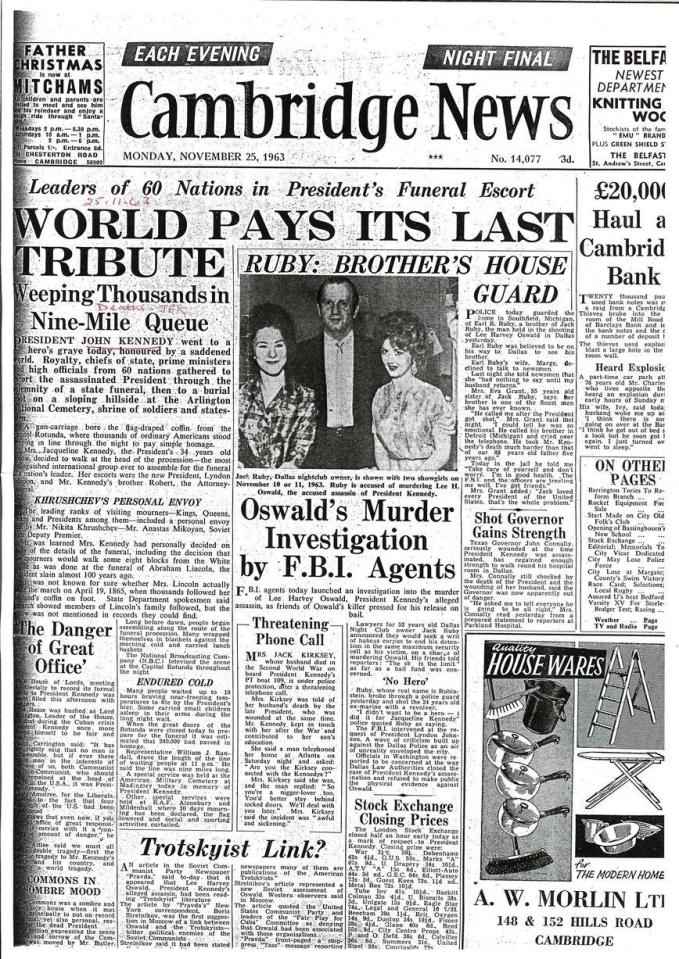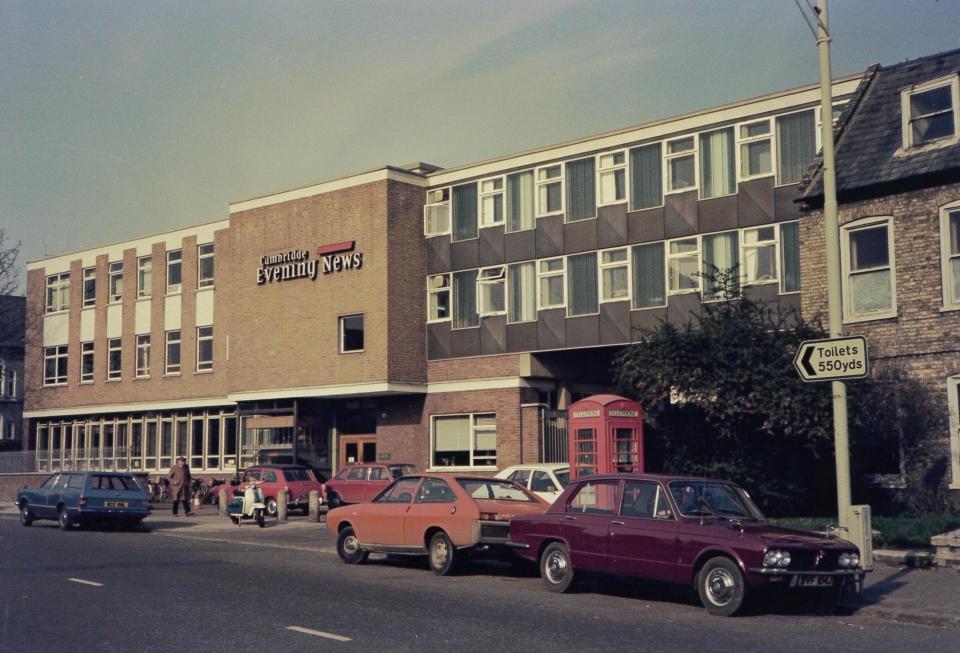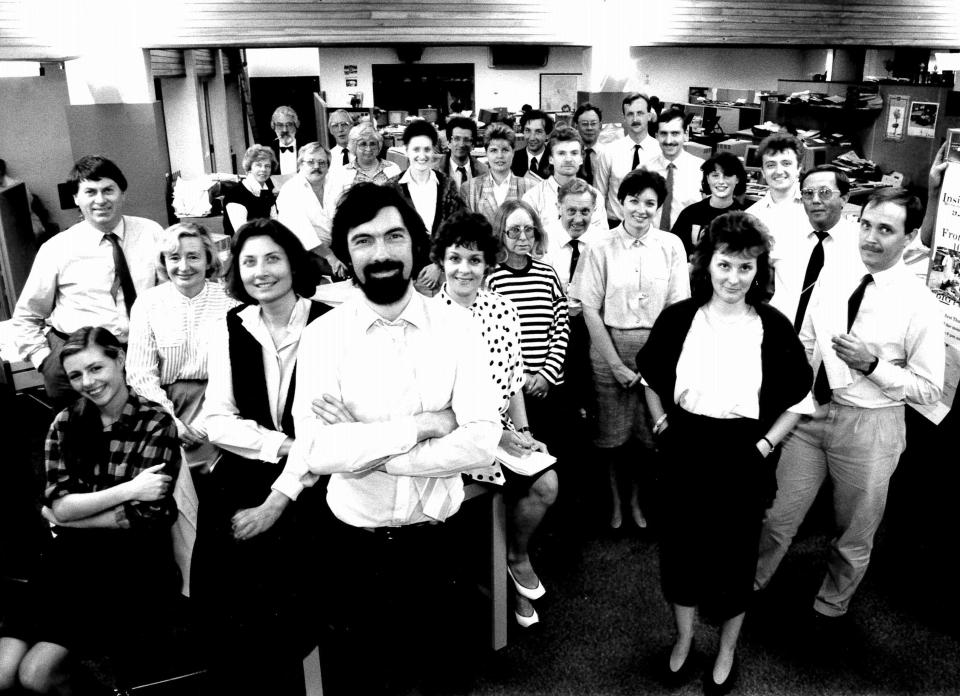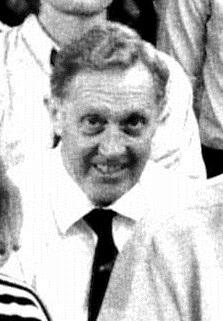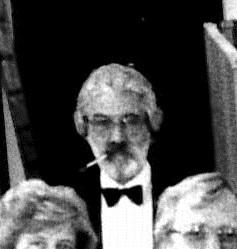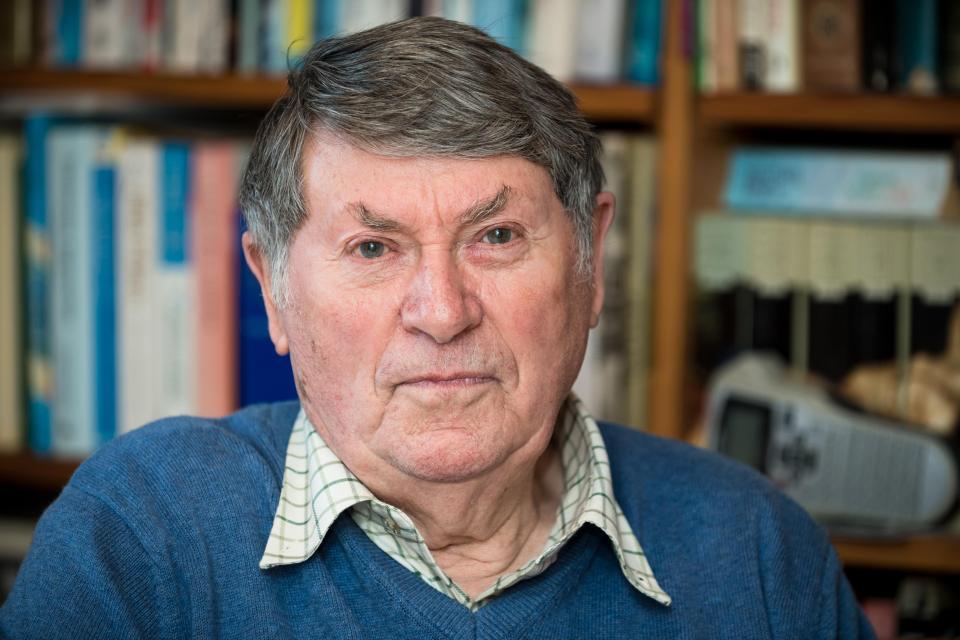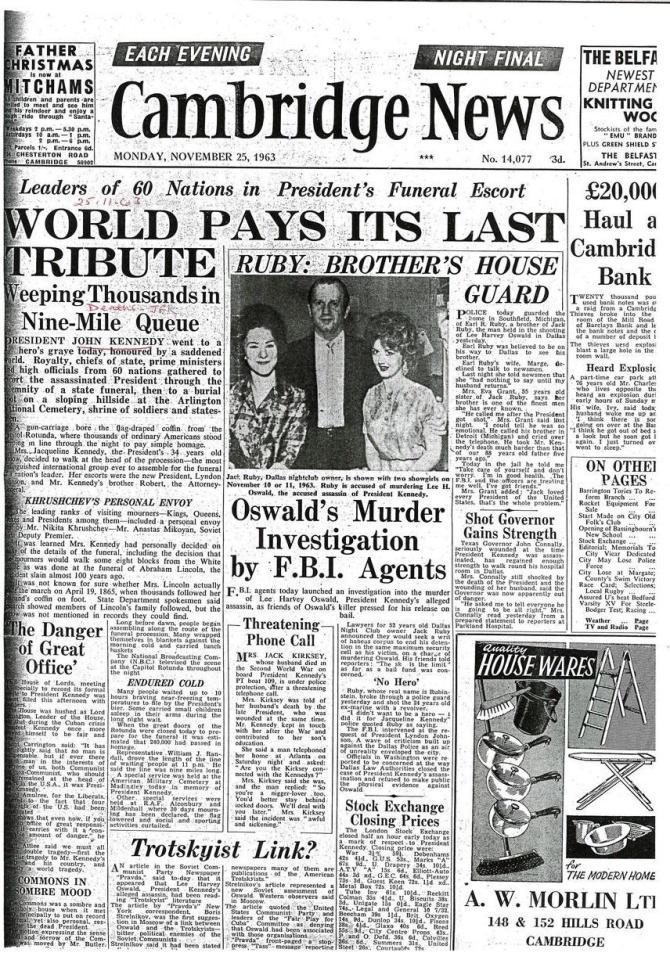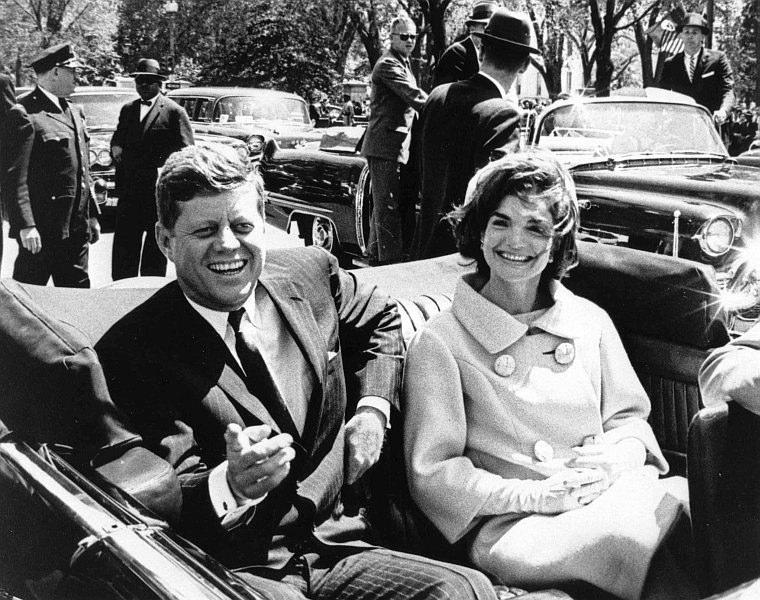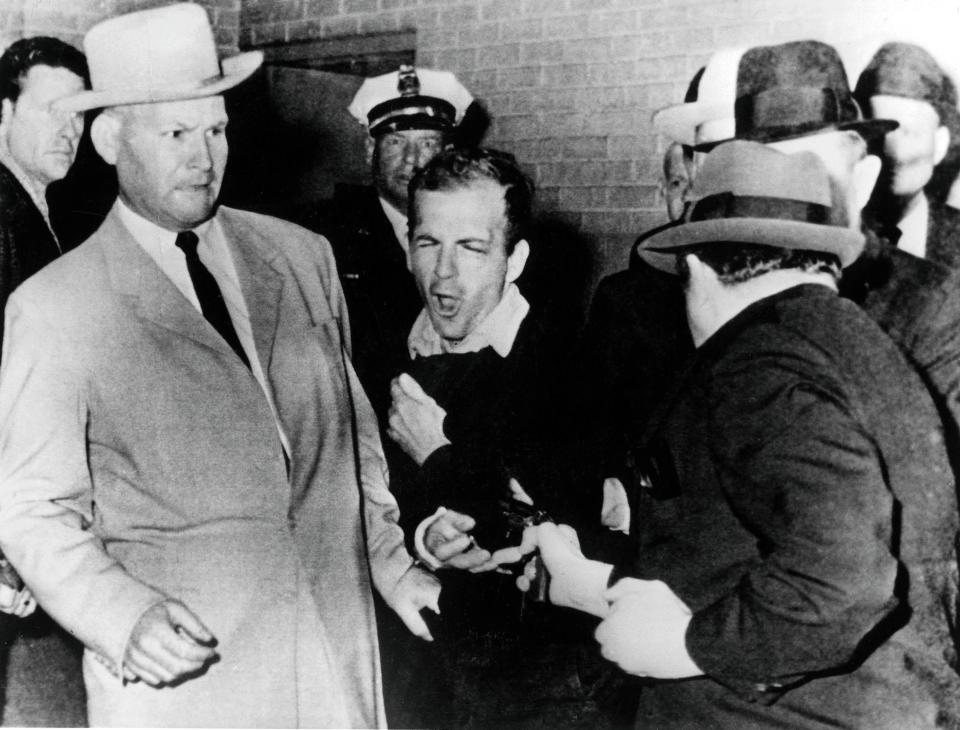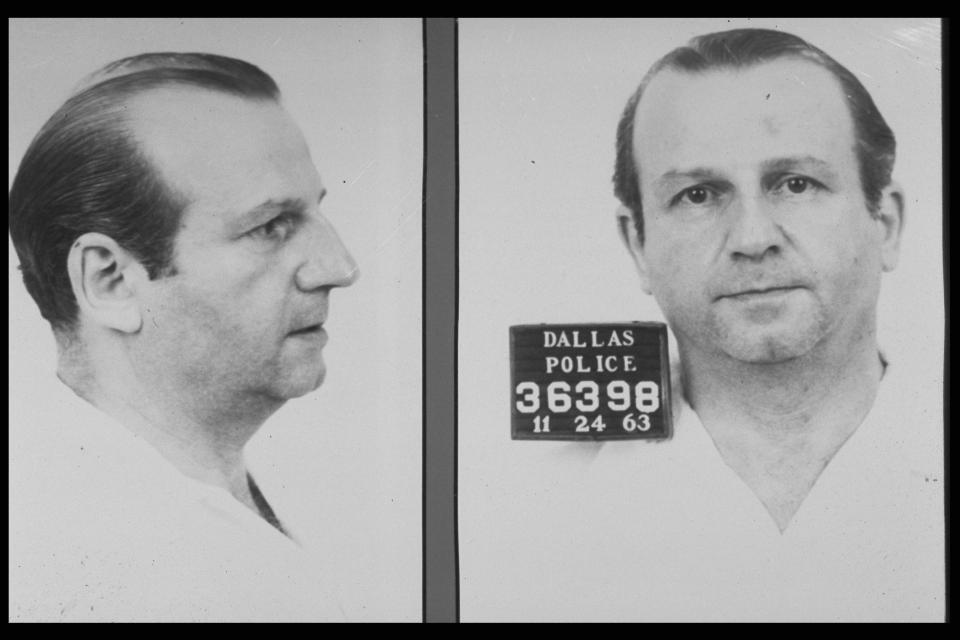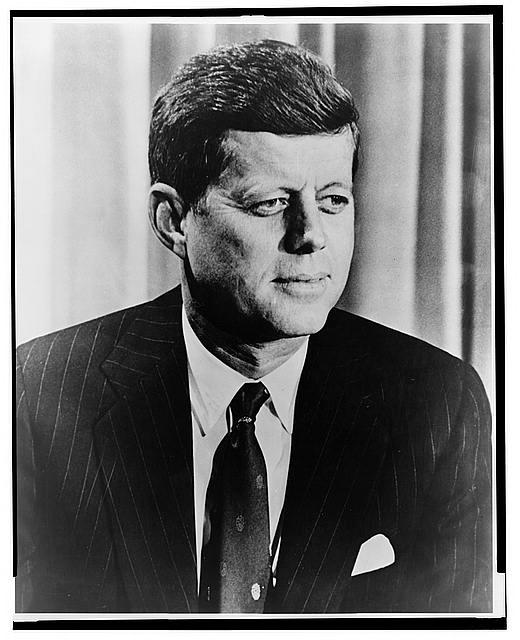Cambridge News reporters deny mystery JFK tip-off ever happened after US government papers claim newsroom received tip-off 25 minutes before assassination
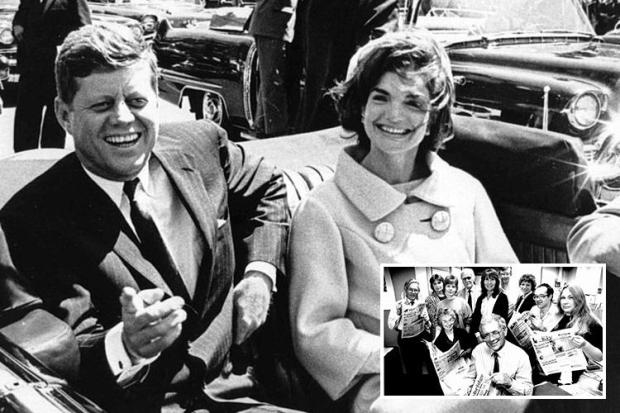
REPORTERS who worked at a British newspaper claimed to have had a tip-off about JFK's assassination in 1963 have said the phone call "never happened".
New documents released by the US government today show the Cambridge News newspaper received a call shortly after 6pm on November 22, 1963, warning "Call the American Embassy in London for some big news".
Around 25 minutes later President Kennedy was shot dead in Dallas, Texas.
It has been claimed the call was made from Grimsby by a British-born Soviet agent called Albert Osborne, who befriended killer Lee Harvey Oswald.
Rodney Tibbs, 83, who was working as a reporter at the time, said the call "could never have happened".
He said: "The proof is that no story of that nature was ever published at the time. No such call was received as far as I'm concerned - You wouldn't just sit on a story like that.
"If we were onto something it would have been a front page lead. You would have got yourself the best front page lead you were ever going to get."
Mr Tibbs, who now lives in Newmarket, Cambs, also questioned whether the call could have been made to another newspaper.
He said: "I'm beginning to suspect the accuracy of this original document, they are saying that they rang the 'Cambridge Newspaper' - they don't specify the Cambridge Evening News because at the time it was the Cambridge Daily News.
"Maybe they rang some other publication in Cambridge, there was Varsity, the university paper.
"I don't think it came into the Cambridge Daily News as it then was. The police would have been crawling with it, it would have been buzzing and it wasn't ever a topic of conversation."
Mr Tibbs, who worked at the paper from 1957 to 2012, said the late chief reporter Steve Ames could have taken the alleged call but added: "I just think it's an absurd thought, it just would not have happened.
"At the time I was just a junior reporter. I don't remember a phone call coming, I remember no discussion in the newsroom about such a phone call but some years later somebody rang in with exactly the same query you're raising - 'did you receive a phone call before the assassination' - and the answer then was no and it remains no."
Former editor Keith Whetstone, who was working at the paper at the time of the shooting, said in 1981: "It sounds like a completely fictitious story."
He added that he had traced 12 members of staff who worked at the paper in 1963 and none of them recalled the telephone call.
Former senior reporter Jock Gillespie, 75, said: "There is no way in hell that would have happened without being talked about.
"There are three or four of us that still get together, 'the old farts', and there's no way that wouldn't have been talked about - that would have never ever got past us.
"People I knew at that time wouldn't have shut up about that - it would have been published as well.
"That's been a windup - are you sure it isn't Cambridge Massachusetts they are talking about?"
Colin Moule, 82, started work at the news in 1952 and became the weeklies editor.
"In 1963 we were up at our new office in New Market Road. There would have been people working in the evening because we did work longer days, but we all couldn't believe it, because nobody could think who this reporter could be.
"And we checked with the reporters who were on duty and no-one had received the call."
Retired local government reporter Peter Hoskinson, 87, is sceptical as to why someone would tipoff the Cambridge News with such a big story.
"Why should it be us?" he said. "Surely they would have contacted a local paper in America?
"As far as I know nobody got the phonecall. I don't know anybody at all at the paper who remembers it happening."
The dramatic message was revealed in a document written by the CIA released by the US government today. The name of the reporter who took the call was never revealed.
A story by the Cambridge News in 1981 unearthed by Sun Online reveals the reporter could have been the only journalist in the office at the time of the call and may have been sworn to secrecy by the CIA.
Archivist and Cambridge historian Mike Petty told Sun Online: "It remains something of a mystery. There appear to be a number of reporters who worked on the paper at the time who in 1981 had no recollection of the call.
"The stories didn't have bylines in those days either so it's not easy to find out now who wrote the story of Kennedy's assassination at the time."
Solicitor Michael Eddowes unearthed the document in 1979 and it was published by the Cambridge News in 1981.
He believed Osborne didn't call his local newspaper the Grimsby Telegraph as he didn't want to the call to be easily traced.
Speaking in 1981, Mr Eddowes said the call was made because the Soviet Union was eager that the assassination should be seen as a conspiracy.
He said: “They left every single lead … and this call was their final effort."
But newspaper staff speaking at the time poured scorn on the story and no mention of the tip-off was made in the Cambridge News' coverage in 1963.
Former editor Keith Whetstone, who was working at the paper at the time of the shooting, said in 1981: "It sounds like a completely fictitious story."
He added that he had traced 12 members of staff who worked at the paper in 1963 and none of them recalled the telephone call.
Frederick Drayton Porter, who was Chief Constable of Cambridgeshire Police at the time of the shooting, added: "I had only just been appointed to Cambridge. If anything of that nature had come up I would have remembered it vividly."
The then Chief Inspector of Special Branch Frank Cox also stated: "I can remember that day in particular. I was off duty and came on at about 8pm.
"I am absolutely certain that nothing of that nature was reported."
Mr Eddowes died in 1992.
The CIA document stated: “An anonymous call was made to Cambridge, England, to the senior reporter of the Cambridge News. The caller said only that the reporter should call the American Embassy in London for some big news, and then rang off.
"After word of the President’s death was received, the reporter informed the Cambridge police of the call. Important thing is that the call was made, according to British calculations, about 25 minutes before the President was shot.”
Mr Osborne was born in 1888 in Grimsby and was one of 12 children. He was enlisted into the British Army in 1906 but resigned shortly before World War One and travelled to America.
He is believed to have died in hospital in San Antonio, Texas, in 1963.
Communist Oswald, who was arrested for shooting President Kennedy on November 22, 1963, attended the Soviet Embassy in Mexico City on September 28.
He was shot dead by businessman Jack Ruby while being escorted to a Dallas prison by police two days later
The FBI files revealed Oswald met with Valeriy Vladimirovich Kostikov, a senior KGB agent who was known to have worked for the KGB's 13th department - which was responsible for assassinations.
In another document, it is sensationally revealed that the FBI learned of the meeting on October 1 of that year - more than a month before the killing that shocked the world.


